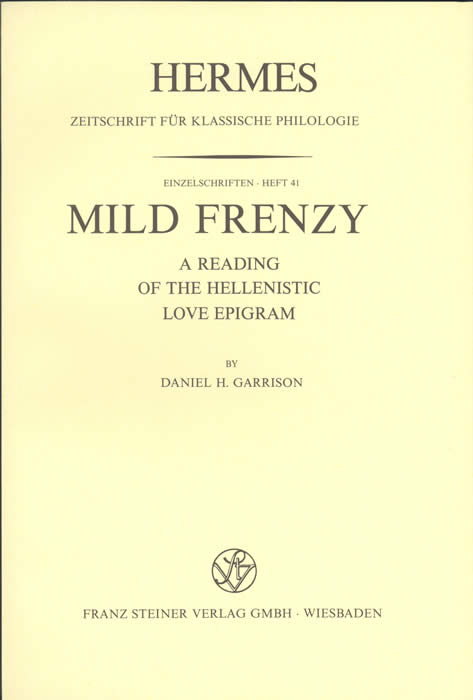Mild Frenzy:

A Reading of the Hellenistic Love Epigram
The small body of love epigrams which survive from Hellenistic times demonstrates the ambivalence towards erotic passion which is more widely documented in Sexual Culture in Ancient Greece (Oklahoma, 2001). The strategy of the Hellenistic epigrammatists was to place erotic experience in a sheltered, typically sympotic world of love, and to play out its actions in a way that minimized its emotional shocks. Characteristically absent are the violent extremes of personal eros found in Archaic Greek lyric. For this reason, modern criticism of Hellenistic love epigram has devalued it for its lack of grand passion and other features of strong emotional engagement that have been thought obligatory of "sincere" love poetry. Chapters on Asclepiades and Callimachus demonstrate how the genre's two earliest masters used poetic rhetoric to blunt love's pathos. A final chapter on Meleager of Gadara shows how an equally skilled poet, lacking the determination to keep eros at an arm's length, used many of the same conventions but sometimes wrote about a love which has a deeper place in the lover's soul.
